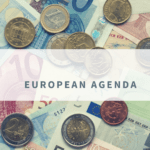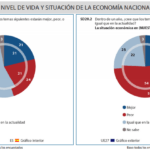How can societies and people prosper and grow without harming the environment and climate? Is it possible to implement the European Green Deal through social innovations that have little or no environmental impact? To broaden the sustainability debate, a European Environment Agency (EEA) briefing, published today, explores alternative ways of thinking about growth and progress.
The EEA briefing ‘Growth without economic growth’ presents an overview of the various ideas about progress beyond economic growth.
Economic growth is closely linked to increasing production, consumption and resource use, which has negative effects on nature, climate and human health. Moreover, current research suggests that it is unlikely that economic growth can be completely detached from its environmental impacts, the EEA briefing notes.
Various ideas and theories have been presented to rethink economic growth and societal progress. Green growth, doughnut economics, post-growth and degrowth agendas all share similar aims but diverge in their means to achieve sustainability goals. The EEA briefing reminds that economic growth is highly correlated with indicators for human well-being, such as life expectancy and education. At the same time, Europe’s fundamental values, such as human dignity, freedom, democracy, are not materialistic and maintaining high social, health and environmental standards does not have to depend on economic growth.
Political initiatives for a sustainable future require not only technological change, but also changes in consumption and social practices. The challenge is to innovate lifestyles that consume less but are attractive to individuals without an environmental, spiritual or ideological interest. Could the European Green Deal, for example, become a catalyst for a society that consumes less and grows in other than material dimensions, the EEA briefing asks.







Leave a Reply